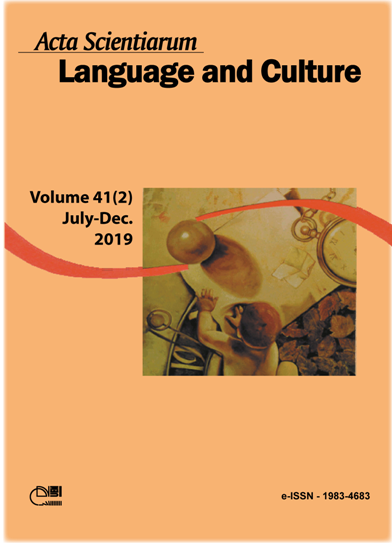Contribution to a history of Goan short-stories in Portuguese
Abstract
This article resumes what might be defined as a historiography of the Goan short story in Portuguese in order to discuss how intellectuals such as Filinto Cristo Dias, in Esboço da literatura indo-portuguesa (1963) [Sketch of indo-portuguese literature], Vimala Devi and Manuel de Seabra in A literatura indo-portuguesa (1971) [Indo-portuguese literature] or Paul Melo e Castro, in Lengthening shadows: an anthology of Goan short stories translated from the portuguese (2015), among others, narrate the development of this literary genre in Goa. Our aim is to demonstrate how the Goan short story in Portuguese was immensely profitable, so much that it still flourished after the end of colonialism in 1961, when Portuguese lost its status as an official language. Then, the article focuses on the book Contos e narrativas [Short stories and tales] (1997), by Carmo de Noronha, that so far has not had the attentive critical approach it deserves. It also deals with the importance of his work, the role of the writer in the maintenance of Portuguese as a literary language in Goa, as well as on its insertion in the plurilinguistic Goan literary universe.
Downloads
DECLARATION OF ORIGINALITY AND COPYRIGHTS
I Declare that current article is original and has not been submitted for publication, in part or in whole, to any other national or international journal.
The copyrights belong exclusively to the authors. Published content is licensed under Creative Commons Attribution 4.0 (CC BY 4.0) guidelines, which allows sharing (copy and distribution of the material in any medium or format) and adaptation (remix, transform, and build upon the material) for any purpose, even commercially, under the terms of attribution.
Read this link for further information on how to use CC BY 4.0 properly.




















6.png)









